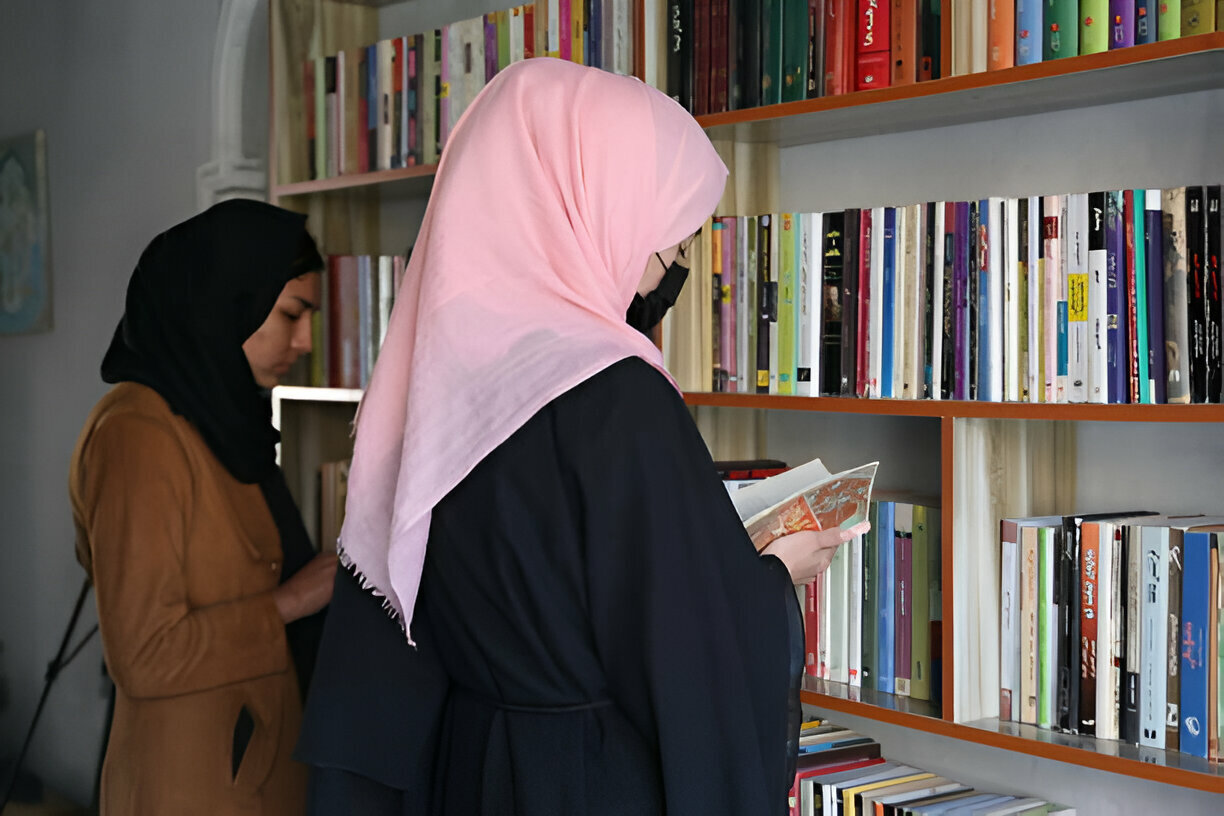KABUL (SW) – A survey conducted by Salam Watandar based on interviews with 30 girls deprived of education reveals a notable decline in motivation for reading among these individuals following the ban on education for them.
Among them, 17 girls reported that after the closure of schools and universities, they have lost all motivation for reading and bid farewell to books. However, 13 others mentioned that despite the challenges, books remain their companions.
These girls attribute the dwindling interest in reading to the restrictions imposed on education, work, and women’s arts. They say that the increasing limitations imposed on women have adversely affected their motivation to read and improve their capacities.
All 17 interviewed girls who have completely stopped reading books cite their lack of hope for the future and their despair over the reopening of schools and universities for girls as reasons for bidding farewell to books.
Gulafroz, an 11th-grade student from Jowzjan province, said, “Since the arrival of the Islamic Emirate, I have not read any book. What is the point of reading? During school days, I used to study a lot and read for my future, but now my enthusiasm for reading has vanished.”
Asuda, an 8th-grade student from Kabul city, echoed similar sentiments, saying, “I think it is a bad memory that remains with us. Whenever I try to read, all the bad memories come flooding back.”
Sedaf, a journalism student at Kabul University, reminisced, “When we were studying, our future seemed bright. During those days, our passion for reading was very high, but after the changes, studying was prohibited, and our hope vanished. There’s no interest left in reading.”
Asma, a university student in Kabul, also expressed her disillusionment: “I do not read anymore. What is the point? Even if you read, it is useless. They do not allow it. Since schools and universities closed, there is no desire to read anymore.”

Out of the girls interviewed in this report, 13 others mentioned that despite all the limitations and challenges, they still read books. Among these 13 girls, two read for entertainment, three for capacity building, two to escape worldly concerns, and six others for increasing their awareness, reading books either regularly or intermittently.
Two of these girls mentioned that although the level of reading among them has decreased compared to the past, however, they still read some novels occasionally for their amusement.
Siyahmoy, an agriculture student residing in Kabul, remarked, “I do not read as much as I used to in the past. We were busy with studies before, but now I read some storybooks to pass the time.”
Ayesha, a journalism student, also residing in Kabul, added, “I read gradually; because universities are closed. I read once or twice a month because I cannot. I used to read well at the beginning, but now there is a lot of poverty and deprivation, so we do not have peace of mind to read, it is restless.”
However, Soriya and Fariha, two journalism students for whom reading has become a daily habit, express that the sole escape from life’s worries for them is reading books. They find solace in books, using them as a means to alleviate mental pressures.
Soriya explains, “One of my important activities is reading, and I read for about an hour or half an hour daily. I aim to increase my knowledge and be an informed individual. Reading has become a habit for me.”
Similarly, Fariha says, “I read a lot at night; it had become a habit for me. The reason I read is that it distances me from life’s worries, and I learn from various periods. Motivational books mostly attract me.”
Meanwhile, book publishers in Kabul city also report a decrease in women’s presence for book purchases, saying that due to a significant decline in the motivation for reading among young people, especially women, their sales also has decreased.
Samiullah Mohammadi, manager of one of the bookstores in Kabul’s Pul-e-Surkh area, tells Salam Watandar, “The traffic of young ladies has dramatically decreased at this time. It was good at first, but over time, the interest and crowd of women have decreased.”
However, some authors and university professors find the decline in motivation for reading among women and young people worrisome, noting that a downturn in reading signifies a decline in knowledge and enlightenment in a society. According to them, the reduction in reading not only affects the public but also affects the status of writing and publishing.

Maryam Noori, a writer, says, “Unfortunately, people’s interest in reading books has diminished. We have witnessed thousands of books being collected from libraries, and authors have seen that people are not interested, leading them to refrain from publishing their books.”
Tariq Haqjo, a university professor, also says, “The motivation for reading has been low both in the past and now. Current conditions have had an impact on women’s reading. However, women should not succumb to circumstances and should read and increase their awareness to benefit from the opportunities they have in the future.”
According to women’s rights activists, the decline in reading among women has long-term and irreparable consequences for the entire society and even future generations, emphasizing the need to focus on motivating women and girls to read.
Yalda Azizi, a women’s rights activist, says, “Unfortunately, reading among women has decreased significantly, which has a very negative impact. Mothers educate their children through literacy. The government needs to support women in this regard.”
While girls who have been deprived of education attribute the sole reason for their declining motivation to read to the restrictions imposed by the de-facto government on women and the ban on education for them, Islamic Emirate’s spokesperson Zabihullah Mujahid, and Hayatullah Mohajer Farahi, Deputy Minister of Publications for the Ministry of Information and Culture, encourage youth to read and express concerns about its decline among the populace.
Zabihullah Mujahid emphasizes the importance of reading for personal growth, stating, “Reading is crucial for individual development. The Islamic Emirate encourages youth to read through various methods, aiming to play a significant role in transforming their lives.”
Similarly, Hayatullah Mohajer Farahi also acknowledges the unfortunate decline in reading among youth and highlights efforts by the Ministry of Information and Culture to promote reading. He mentions, “Unfortunately, reading has decreased among youth, and the Ministry of Information and Culture is making efforts to promote reading. Over the past year, we have organized book fairs to increase young people’s interest in reading, and we pledge assistance to writers who lack the means to publish their books.”
The decline in reading among girls deprived of education coincides with increased restrictions on education and employment for women following the re-establishment of the de-facto government, by the Islamic Emirate.






